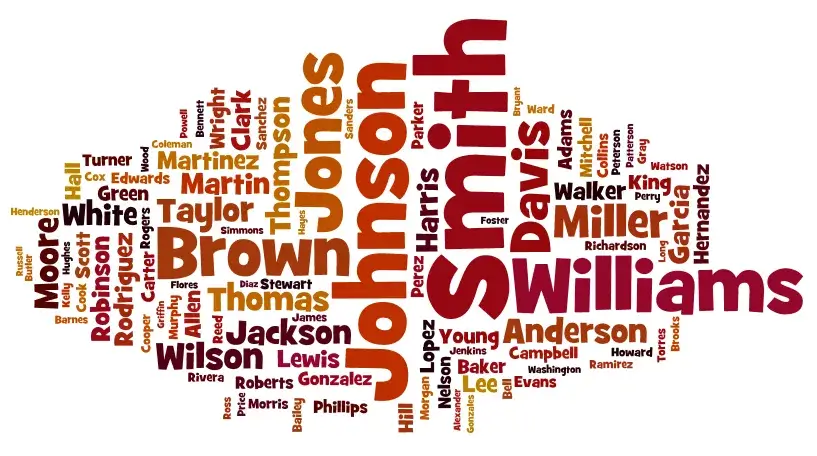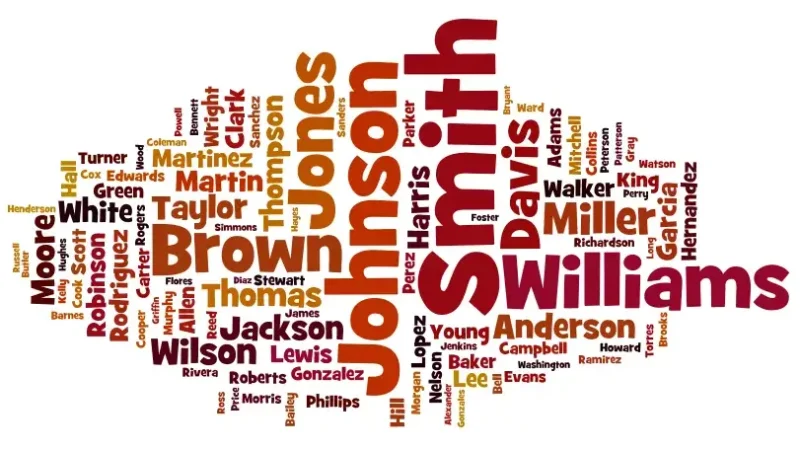White Last Names: Where They Come From & Why They Still Matter

Last names are more than words — they’re cultural fingerprints. When we talk about white last names, we’re diving into the surnames that have been historically linked to European and Anglo ancestry, especially in the UK, the US, and other English-speaking nations. Let’s break down what these names mean, where they came from, and why they still hold weight in today’s world.
📚 What Exactly Are “White Last Names”?
“White last names” usually refer to surnames commonly associated with people of European descent — particularly from English, Scottish, Irish, German, or French backgrounds.
These names became widespread due to:
- Colonial history
- Migration
- Cultural dominance in English-speaking countries
You’ve definitely seen them: Smith, Taylor, Johnson, Brown, Wilson — names with old-world roots but still found on modern doorbells, IDs, and LinkedIn profiles.
🧭 The 4 Main Types of Surnames in Europe
Most white or European last names fall into one of these categories:
1. Occupational
Names that came from the job someone did:
- Smith = blacksmith
- Miller = grain miller
- Taylor = tailor (clothing maker)
2. Patronymic
Based on the father’s name or lineage:
- Johnson = son of John
- Anderson = son of Anders
- Thompson = son of Thomas
3. Topographical
Based on where a family lived:
- Hill, Marsh, Brook, Wood
4. Descriptive
Based on physical traits or character:
- Brown, Young, Strong, Short
🌍 Colonialism & Global Reach
Thanks to the British Empire’s global footprint, these surnames didn’t stay local. European last names spread across Africa, Asia, the Caribbean, and North America. In many colonized nations, local populations were assigned or adopted European surnames during slavery, missionary movements, and administrative rule.
📊 Most Common White Last Names in the UK
Here’s a list of top surnames in the UK historically associated with white heritage:
| Rank | Surname | Origin |
|---|---|---|
| 1 | Smith | English (blacksmith) |
| 2 | Jones | Welsh |
| 3 | Taylor | English |
| 4 | Brown | English/Scottish |
| 5 | Williams | Welsh |
| 6 | Wilson | Scottish |
| 7 | Johnson | English/Nordic |
| 8 | Davis | Welsh/English |
| 9 | Clarke | English (clerk) |
| 10 | Evans | Welsh |
These names have stood the test of time — not just because they’re simple, but because they tell stories of trade, faith, geography, and family.
🧠 Why This Still Matters
Understanding surname origins gives us:
- A clearer picture of our heritage
- Insight into colonial legacies
- Cultural awareness in an increasingly diverse world
For marketers, researchers, and even AI developers, surnames can be clues to demographics, language preferences, and regional trends — though always with respect to nuance and privacy.
🖼️ Image Suggestions
Use high-quality, relevant visuals like:
- Vintage British census documents – Historical vibe
- Old town signs or village name plates – Topographical names
- Family crest overlays – Surname legacy
- Blacksmith or tailor illustrations – Occupational roots
- Map of surname origins in the UK – For visual learners
Use alt tags like:
alt="UK surname origin map"alt="Historical British last names document"
📌 Final Thoughts
White last names aren’t just relics from the past — they’re living artifacts of culture, class, and history. From the factories of Manchester to the highlands of Scotland, these surnames carry the weight of centuries. Whether you’re tracing family roots or building a brand, knowing the history behind a name is never a waste.
At Ebizz.co.uk, we dive deeper than surface-level trends — we explore the roots that define our present.






